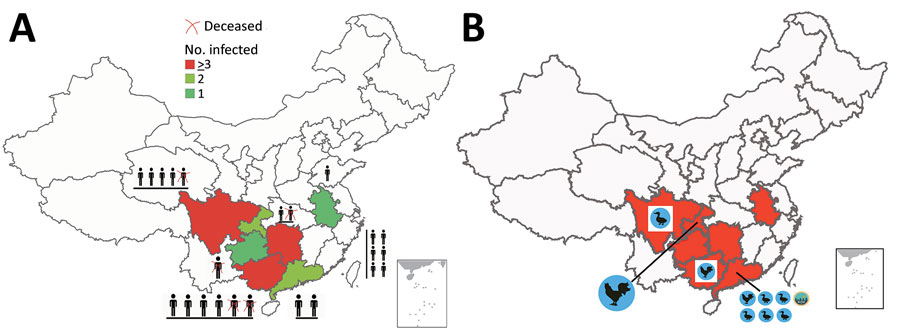Volume 28, Number 8—August 2022
Dispatch
Novel Reassortant Avian Influenza A(H5N6) Virus, China, 2021
Figure 1

Figure 1. Distribution of confirmed cases of avian influenza A(H5N6) virus in humans, China, 2021. A) Provinces of the outbreaks and number of infected persons. A red X indicates a deceased person, and colors represent the number of infected persons. B) Region of novel H5N6 virus isolation from birds (chickens, ducks) and the environment (green icon). The red areas on the map indicate the provinces where human cases occurred in 2021. Insets indicate islands of China, additional sites of poultry breeding and human habitation.
1These authors contributed equally to this article.
Page created: June 03, 2022
Page updated: July 21, 2022
Page reviewed: July 21, 2022
The conclusions, findings, and opinions expressed by authors contributing to this journal do not necessarily reflect the official position of the U.S. Department of Health and Human Services, the Public Health Service, the Centers for Disease Control and Prevention, or the authors' affiliated institutions. Use of trade names is for identification only and does not imply endorsement by any of the groups named above.